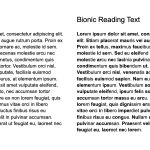Last Updated on 21/11/2025 by Eleanor Thompson
Abstract
The Socratic Method, originating from ancient Greece and attributed to the philosopher Socrates, is a form of dialogue-based learning that encourages participants to ask and answer questions in order to stimulate critical thinking and illuminate ideas. This article provides an in-depth understanding of this method, its historical success, and its relevance in modern-day teaching and everyday life.
What is the Socratic Method?
Named after its originator, Socrates, the Socratic Method is an age-old pedagogical technique where knowledge is sought through questioning and dialogue. Instead of imparting information directly, the instructor or leader uses probing questions to guide the student or participant towards discovering answers on their own. This method challenges the status quo, helping individuals uncover assumptions, clarify terms, and ascertain the validity of their beliefs.
Socratic Method Definition
In its purest form, the Socratic Method can be defined as a form of cooperative argumentative dialogue between individuals, based on asking and answering questions to stimulate critical thinking and to draw out ideas and underlying presuppositions. It stands in contrast to didactic teaching methods, where knowledge is simply delivered from teacher to student.
Was Socrates’s method successful?
By many historical accounts, the Socratic Method was indeed successful. Socrates’s style of questioning transformed Athenian youth, encouraging them to question authority, assumptions, and the nature of life itself. His notable students, like Plato, carried forward his methods, influencing the entire course of Western philosophy. However, his method also made him many enemies, ultimately leading to his trial and execution.
In terms of intellectual exploration and fostering critical thinking, the method’s legacy speaks for itself. Much of Western philosophy can trace its origins back to the dialogues and questions posed by Socrates and his followers.
How can you use the Socratic method today?
The versatility of the Socratic Method means it’s not confined to ancient Greek symposiums or modern-day philosophy classes. Its principles can be applied in a variety of contexts:
- Debates and Discussions: Encouraging participants to clarify their statements and define their terms can lead to clearer, more productive debates.
- Problem-solving: Instead of seeking direct solutions, posing questions can help individuals think deeply about the root causes of problems.
- Self-reflection: Questioning our own beliefs and assumptions can lead to personal growth and self-improvement.
- Counselling and Therapy: The Socratic Method aids therapists in guiding patients to self-awareness by challenging underlying beliefs and cognitive distortions.
- Business Decision-making: In the corporate world, leaders utilise the Socratic Method to foster team-driven solutions and innovative thinking during decision-making sessions.
Socratic Method of Teaching
In contemporary educational settings, the Socratic Method in teaching offers multiple benefits:
- Active Participation: It encourages students to actively participate in their learning process rather than passively absorbing information.
- Development of Critical Thinking Skills: Through continuous questioning, students learn to think critically, evaluate evidence, and formulate reasoned conclusions.
- Encourages Peer Learning: As students engage in dialogues, they learn not only from the instructor but also from their peers.
- Identifying Misconceptions: The process can quickly highlight misconceptions, allowing for immediate correction and deeper understanding.
The Role of Technology in Modern Socratic Dialogue
In the digital age, the Socratic Method has found new avenues and platforms for expression. Online forums, social media, and even dedicated educational platforms harness the power of questioning and dialogue in ways Socrates himself could never have imagined. Platforms like Reddit, with its AMA (Ask Me Anything) sessions, can be seen as a form of the Socratic Method, where experts field questions from a global audience in real-time. Similarly, e-learning platforms that promote peer interaction encourage students to challenge, question, and learn from one another, reflecting the core tenets of Socratic engagement. While the medium has changed, the essence remains unchanged: fostering deeper understanding through questioning. However, it’s essential to approach these digital dialogues with the same level of respect and open-mindedness that traditional Socratic dialogues demand. The ubiquity of technology offers an opportunity to make Socratic inquiry more accessible, but it also poses challenges in maintaining the method’s integrity.
Benefits and Challenges
Beyond its many benefits, it’s essential to acknowledge the challenges. The Socratic Method requires a willingness to admit ignorance, which can be difficult in a culture that values expertise. Additionally, it demands patience and skilled facilitators who can guide discussions without imposing their viewpoints.
Conclusion
The Socratic Method, while ancient, remains a powerful tool for learning and dialogue. Its emphasis on critical inquiry and self-discovery is as relevant today as it was in ancient Greece. By fostering an environment of curiosity and self-reflection, the Socratic Method can be instrumental in driving both personal and societal progress. Whether in the classroom or the boardroom, this timeless method offers a means to challenge assumptions, refine thoughts, and promote deeper understanding.
Further reading
The Trial and Death of Socrates by Plato
This book provides a detailed account of the final days of Socrates, including his trial. It’s a primary source for understanding Socratic dialogue and offers insight into his teaching methods.
Socratic Logic: A Logic Text Using Socratic Method, Platonic Questions, and Aristotelian Principles by Peter Kreeft
Kreeft’s book offers an introduction to Socratic logic and serves as a guide for individuals looking to apply the Socratic Method in modern contexts.
Socratic Circles: Fostering Critical and Creative Thinking in Middle and High School by Matt Copeland
A practical guide for educators, this book details how to implement the Socratic method in today’s classrooms. Copeland provides strategies, examples, and insights for teachers.
The Socratic Method: Teaching by Asking Instead of by Telling
This article, written by Rick Garlikov, gives an example of the Socratic method being applied in a third-grade classroom on the topic of binary numbers. It’s a tangible example of how this method can be used effectively in education.
Website URL: http://www.garlikov.com/Soc_Meth.html
Critical Thinking Web: Tutorials on Critical Thinking
This website offers free tutorials on critical thinking, logic, fallacies, and more. While not strictly about the Socratic Method, it covers many of the foundational skills and ideas central to Socratic questioning.
Website URL: http://philosophy.hku.hk/think/
The Socratic Method Research Portal
This website is a comprehensive portal dedicated to understanding the Socratic Method. It contains resources, discussions, and various perspectives on Socratic questioning.
Website URL: http://www.socraticmethod.net/
Special thanks Wally Gobetz for providing the image
Author Profile
Latest entries
 Resources2024.01.25Animals That Start With The Letter N
Resources2024.01.25Animals That Start With The Letter N Bionic Reading2023.09.22Bionic Reading for Dyslexia: A Potential Bridge to Enhanced Comprehension
Bionic Reading2023.09.22Bionic Reading for Dyslexia: A Potential Bridge to Enhanced Comprehension Bionic Reading2023.09.21Bionic Reading for ADHD: Harnessing the Power of Visual Cues to Aid Focus and Comprehension
Bionic Reading2023.09.21Bionic Reading for ADHD: Harnessing the Power of Visual Cues to Aid Focus and Comprehension Bionic Reading2023.09.20Bionic Reading Method
Bionic Reading2023.09.20Bionic Reading Method




